Whether it’s your grandmother’s vase or a brand new bike, you will likely try to make sure that it stays unscathed. As you should; possessions might not be the most important thing in the world, but that doesn’t mean you don’t have to take good care of them.
Forthis redditor, it was a new car—the first big item he had bought for himself—that he wanted to keep in good condition. That’s why he wouldn’t let his girlfriend and her son bring drinks or food into the car. And that one time they did, it ended in them getting thesilent treatmentfrom the driver.
Many people have something they cherish, whether because of its monetary or sentimental value
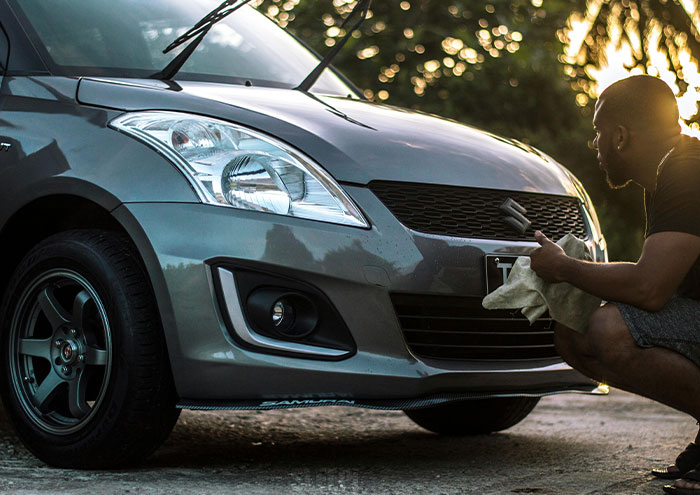
Image credits:Sleepi Alleyne (not the actual photo)
This guy bought a new car and said that there will be no food in the vehicle, but the rule didn’t take long to be broken
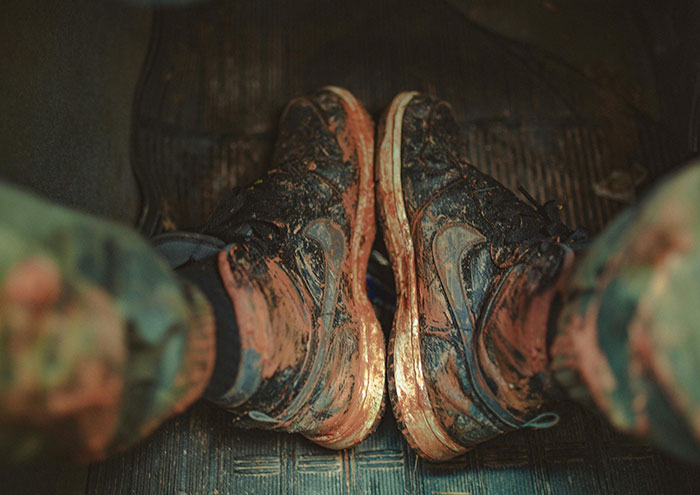
Image credits:Lucas Pezeta (not the actual photo)
Image source:IrregularScrotum
Big purchases often require saving up
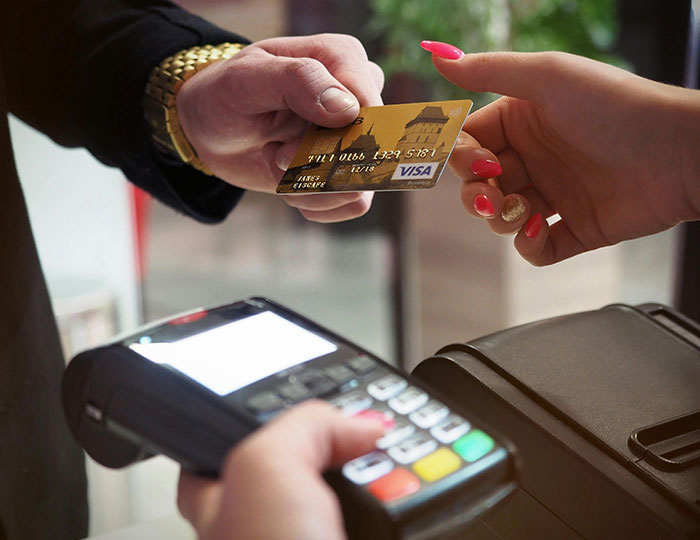
Image credits:energepic.com (not the actual photo)
Some purchases are not easy to make, especially when they call for quite a large lump sum – after months, years, or decades of hard work andsaving up, it might be scary to spend it all at once. That might be one of the reasons why we tend to care so much—sometimes arguably even a little too much—about the items we invest our money in.
In such cases, when big purchases require some saving up to do, they understandably don’t happen too often.A YouGov surveycarried out in November last year found that fewer than a quarter of consumers feel that they will be in a position to make a big purchase in the year 2024. Data found that in regards to believing they will be able to make such purchases, men seem to be more optimistic than their female counterparts.
The level of how successful people are with saving money unsurprisingly differs from person to person. According toa 2023 survey, roughly half of respondents in the US had a relatively positive view of their capabilities to spend less than they make. Nearly as many people, though, said that they wouldn’t be able to cover their expenses for 90 days if they lost their income. (Less than a third—31%, to be exact—reported that they could cover their expenses for six months or more were such a scenario to happen.) Unfortunately, as much as 33% admitted to having no savings at all.
We sometimes use possessions to signal to ourselves, and others, who we want to be and where we want to belong

Image credits:Кенжар Шарап (not the actual photo)
It’s clear that the things people consider worth spending their hard-earned money on also differ with each person; while some would rather spend it on a gadget that will never leave the bounds of their kitchen, others might want to invest in something that is more visible for those around them, like a watch or an expensive phone. That’s because, according to the editor of the British Psychological Society’s Research Digest with a PhD in Cognitive Neuroscience, Christian Jarrett, ourpossessionsbecome extensions of the self.
Be it a house, a car or something else, the significance of what they represent—family time and road trips respectively, for example—together with the work people put in to afford them, tend to result in the owners being quite cautious about them. Not only that; according to Jarrett, “As our belongings accumulate, becoming more infused with our identities, so their preciousness increases.” That’s why it might not be that surprising that some people take extra good care of their things, and they don’t want them soiled with food; especially when that’s exactly what they ask others not to do.
The OP provided fellow netizens with more details


The majority of them didn’t think the man was a jerk in the situation

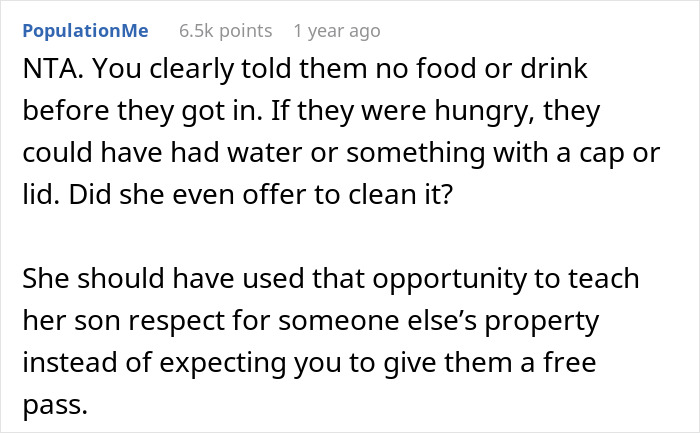
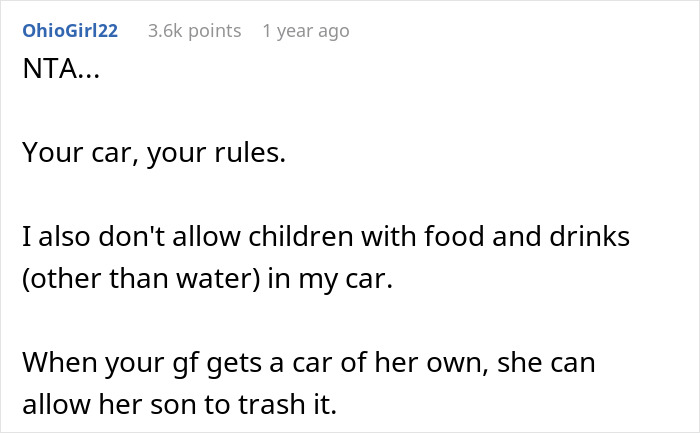

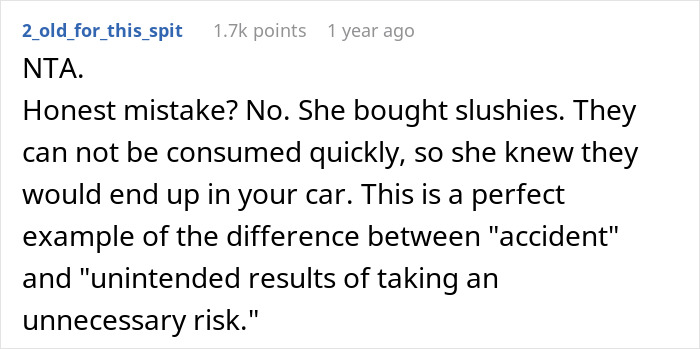


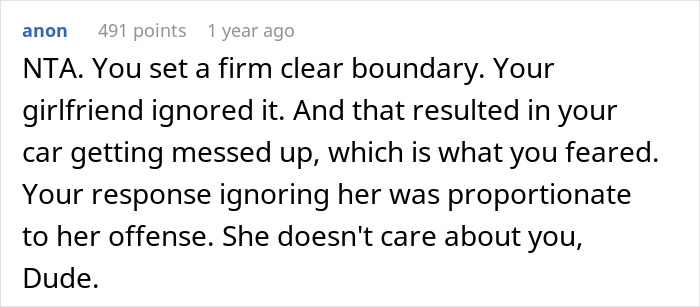





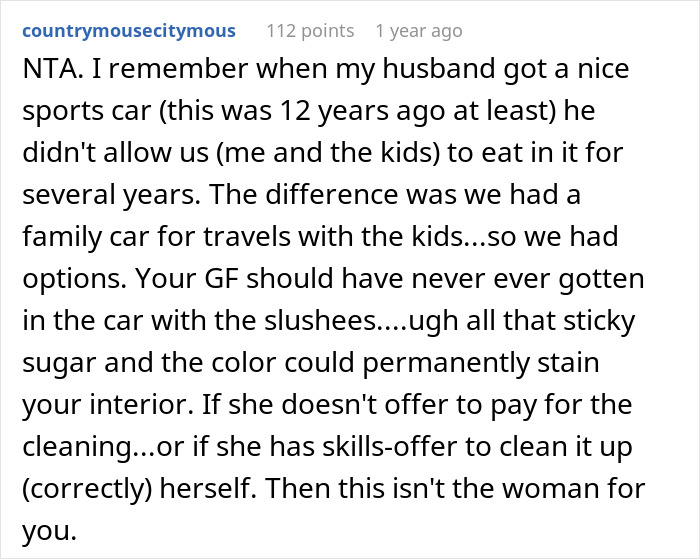




Thanks! Check out the results:Viktorija Ošikaitė
Monika Pašukonytė
Gabija Saveiskyte
Relationships